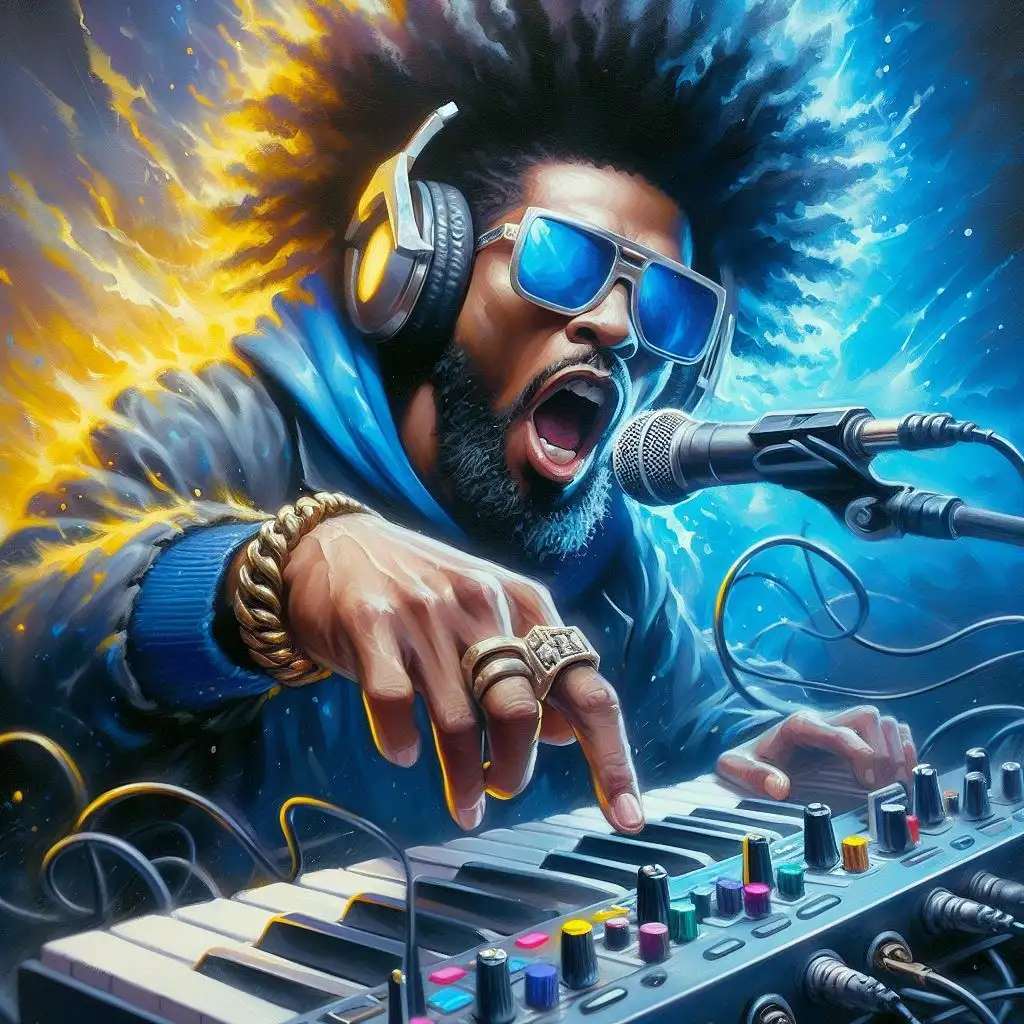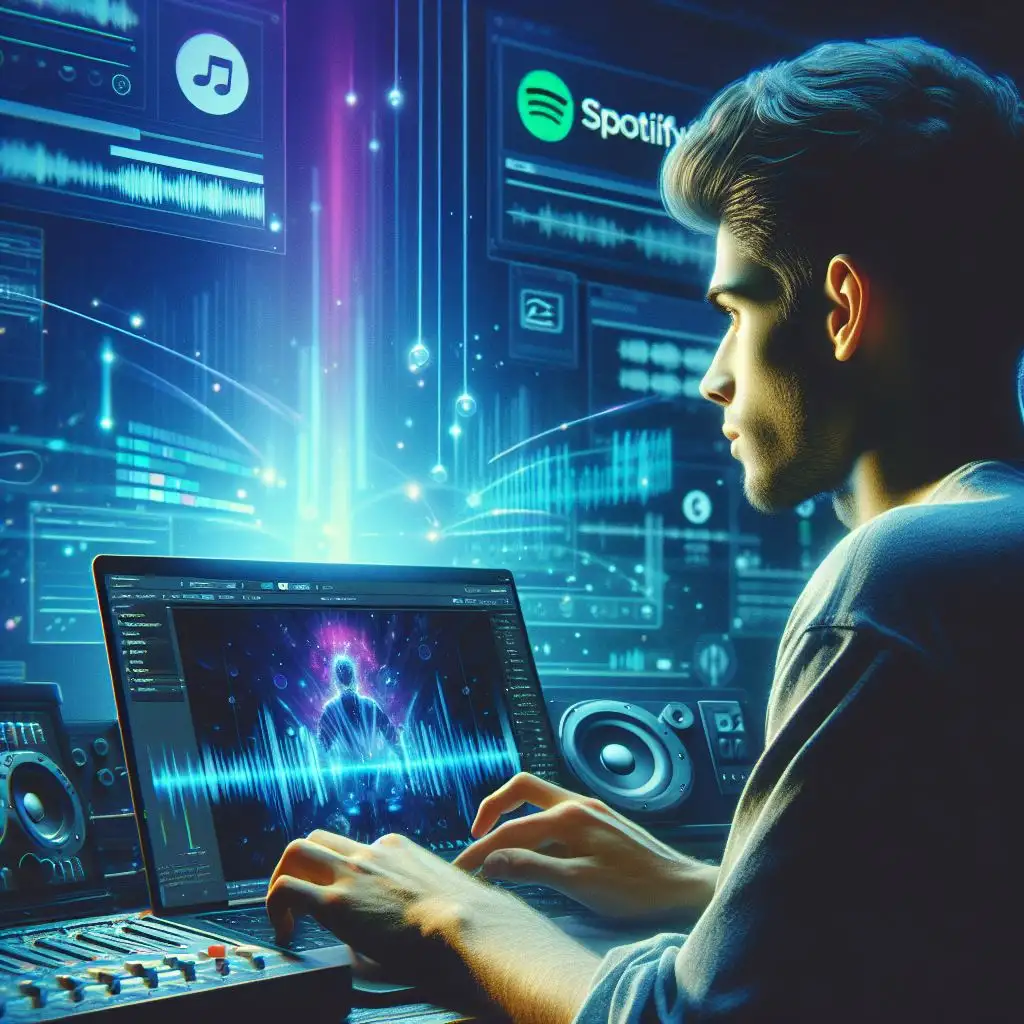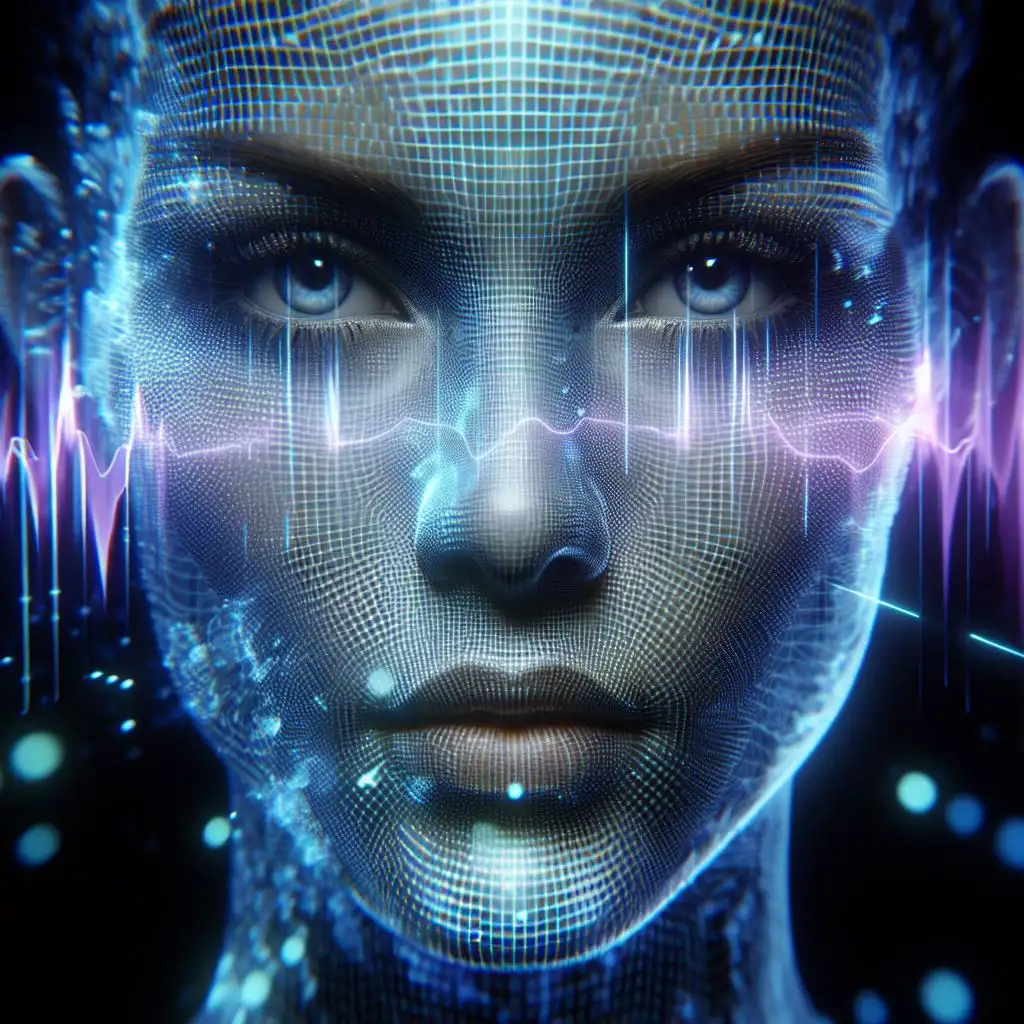How AI is Shaping the Future of Independent Music
How AI is enhancing creativity and revolutionizing the independent music scene.
As an independent artist, staying ahead of the curve is crucial if you want to make waves in the music industry. One trend that's been making serious noise across various fields, including music, is artificial intelligence (AI). While AI has traditionally been the domain of big-name artists and major record labels—mainly due to the high costs involved—things are starting to shift. AI is becoming more accessible to indie musicians, opening up a whole new world of possibilities.
What was once the stuff of sci-fi is now a reality, with AI playing a bigger and bigger role in music. For independent artists, this isn't just some fad—it's a game-changer. In this exploration of the growing connection between AI and music, we'll look at the current scene and all the exciting potential it holds for artists navigating the vast world of soun
But let’s be clear: AI in music isn't about robots taking over the soulful strum of a guitar or the emotional keys of a piano. It’s more about boosting creativity, enhancing production, and helping artists reach new levels of success. For indie artists, who often wear many hats—from composing to marketing—AI can be a powerful partner, amplifying their voice and guiding them through the digital jungle.
With the ris of digital technology, machine learning has become a big player in music production. AI in Digital Audio Workstations (DAWs) is now a go-to tool for music studios, sound engineers, songwriters, and independent artists alike. With just a computer and the right software, anyone can dive into virtual instruments and craft custom mixes with ease.
The combination of AI and music isn't just a future idea; it's happening right now and is changing the independent music scene. Independent artists today are using AI in different parts of their music careers, from creating songs to promoting them, blending their creativity with digital tools to move forward.
How AI is Shaping Music Production
AI is making waves in the music production world, ushering in a new era that's transforming how music is made, shared, and experienced. The media industry is already feeling the impact, with AI-powered solutions expected to be worth a staggering $4.86 billion. This massive shift raises important questions about the ethics of using AI in music, leaving artists, labels, and fans to wonder what this means for the future of creativity.
Music Collaboration and Remixing
AI tools are empowering musicians to collaborate in innovative ways. AI algorithms can separate individual audio tracks, such as vocals and instruments, from mixed recordings. This enables artists to remix and reinterpret existing songs, creating new versions or mashups. Musicians can also collaborate remotely by sharing audio stems and using AI to blend them seamlessly.
Furthermore, AI can assist in real-time music creation during live performances. Artists can use AI-driven instruments and software to generate accompanying music, visuals, and effects, enhancing the live concert experience.

AI in Music Composition and Production
It’s becoming increasingly clear that AI is poised to revolutionize traditional music-making techniques. AI has a wide range of uses that can produce music nearly indistinguishable from that created by humans. By feeding specific data into AI, it can generate virtual instruments that sound as if a master musician is playing them. Several AI programs like Google’s NSynth, AIVA, and Amper are already changing the game. These tools can help reimagine and tweak existing tracks or create entirely new songs from scratch. With the power of virtual instruments at your fingertips, you can compose music without ever needing to play a physical instrument.
AI also takes music personalization to the next level. Services like Spotify and Apple Music already use AI algorithms to recommend songs based on your listening habits, but AI’s potential goes far beyond that. Imagine AI-generated music that creates custom tracks tailored to your preferences, mood, or even biometric data. Picture a song that adapts to your heartbeat or changes tempo based on how you’re feeling. Streaming platforms are using AI to suggest new songs, build playlists, and analyze listeners' music choices, bringing a new level of curation to the table.
One of the most talked-about uses of AI in music is automated composition. Tools like OpenAI’s MuseNet and Jukin’s Composer can create original pieces in various genres and styles, acting as co-composers that spark new ideas. Independent artists can use these tools to break through creative blocks or add innovative elements to their tracks, making them stand out in a crowded market.
AI-powered platforms like Aiva.ai offer artists a wealth of musical ideas, from chord progressions to melodies. These tools serve as digital muses, inspiring artists to craft unique soundscapes. It’s not about AI taking over the creative process but using AI-generated ideas as a foundation for artists to build on and create music that truly reflects their vision.
Marketing and Audience Engagement
AI’s influence doesn’t stop at music creation—it extends into marketing and connecting with audiences. Independent artists now have access to AI-driven platforms that analyze listener data, giving them a deeper understanding of their audience. This insight allows for more personalized marketing strategies and effective outreach. Platforms like Pandora’s Music Genome Project use AI to match artists with listeners who are likely to enjoy their music, breaking down traditional marketing barriers and opening up new growth opportunities.
Streamlining Operations
AI is also making the operational side of the music industry more efficient. AI tools help with tasks like catalog tagging, music mastering, and administrative work, freeing up more time for artists to focus on their creative projects. This is especially valuable for independent artists who often juggle multiple roles in their careers.
Copyright and Royalty Tracking
As the music industry becomes increasingly digital and decentralized, AI plays a critical role in tracking and managing copyrights and royalties. AI algorithms can identify copyrighted material in user-generated content on streaming platforms, ensuring that artists and copyright holders receive fair compensation for their work.
Emerging AI Technologies for Independent Artists
Looking to the future, AI’s role in music continues to evolve, revealing exciting new technologies that could reshape how independent artists create, share, and engage with their music.
- Next-Generation AI Music Tools. Future AI music tools will likely offer even more customization, adapting to an artist’s unique style over time. These tools could not only suggest musical ideas but also learn from the artist’s work, becoming more intuitive collaborators. We might see AI assisting with everything from composing to lyric writing and arrangement, providing a comprehensive suite of creative tools.
- Data-Driven Strategies. As AI technology advances, independent artists will be able to connect with their audience more effectively. Predictive analytics will allow artists to anticipate trends and preferences, helping them make smarter decisions about everything from release schedules to tour locations.
- AI in Live Performances. The future also holds exciting possibilities for AI in live performances. AI could create dynamic visual and auditory experiences that respond to the music and audience in real time, leading to immersive concerts like never before.
- Personalized Listener Experiences. On the listener’s side, AI will make music experiences even more personalized. From AI-curated playlists that adjust to your mood to virtual reality concerts where you can interact with a digital version of your favorite artist, the future of music is full of thrilling possibilities. This personalization not only enhances the user experience but also helps emerging artists gain exposure and reach their target audiences more effectively. AI-driven recommendations bridge the gap between artists and listeners, fostering a more diverse and dynamic music ecosystem.
As AI continues to blur the lines between artist, technology, and listener, we’re heading toward a world where music becomes more immersive, personalized, and creatively diverse than ever before. Independent artists who embrace these technologies will be at the forefront of this exciting new chapter in music.
The Future of AI and Independent Music
AI's growing role in the music scene has sparked some heated debates around creativity and originality. But whether we like it or not, AI is here to stay, and it’s going to keep shaping the indie music world. Looking ahead, AI is expected to dive even deeper into areas like music licensing, where it could help spot copyright issues, and live performances, where it might be used to craft stunning visuals or generate backing tracks on the fly.
But let’s not forget—AI is a tool designed to enhance an artist's creativity, not replace it. For independent musicians, embracing AI could open up new avenues for creating one-of-a-kind music experiences and standing out in a crowded industry.

Final Thoughts
The blend of human creativity and AI is opening doors to uncharted territories in music creation, marketing, and connecting with audiences. It’s a journey packed with exciting opportunities, challenges to tackle, and endless chances for innovation. The key for indie artists is to see AI not just as a tool, but as a collaborator—one that can elevate their artistic vision and amplify their unique voice.
As we look ahead to this new era, it's important to remember that the heart of music will always be human. It’s the passion, emotions, and stories of artists that give music its soul. AI, with all its advancements, is here to enhance that human essence, paving the way for a future where music breaks barriers and resonates deeper than ever.
So, let’s step into this future with open minds and hearts, ready to create something truly special with the endless possibilities that AI brings to the music world. The stage is set, the audience is eager, and the next act in the music industry’s evolution promises to be nothing short of revolutionary.
Blog Article Tags
collaboration marketing audience personalization engagement composition tools experiencesMore Articles
Where To Find Good Indie Music - If you're a long time fan or first time listener of Indie music, we'll show you the best methods for discovering the music you love.
Top 10 Best Guitar Accessories - I show you the top 10 essential guitar accessories for better performance.
Breaking Into The Music Festival Circuit As An Independent Artist - Let's learn some strategies for indie artists targeting music festival performances.
Flowers on the Battlefield by WLM -
Ryuichi Sakamoto - The Art of Film and Music - Who is Ryuichi Sakamoto and his impact on music & film? Let's find out.


